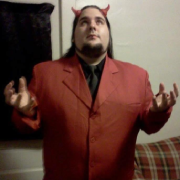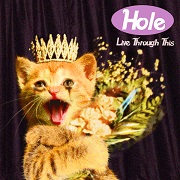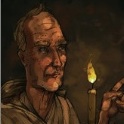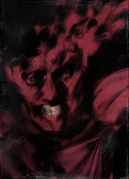|
The first half of Freedom from Fear deals with the Great Depression, and I really liked it. And when I say first half, this is an Oxford History of the US book so it goes into great depth. http://www.amazon.com/Freedom-Fear-American-Depression-1929-1945/dp/0195144031
|
|
|
|

|
| # ? May 14, 2024 00:40 |
|
Can anyone recommend any good books on Polish History? I'm interested in finding out how one of Medieval Europes superpowers became such an economic and political basket-case by the time of the partitions.
|
|
|
|
|
Ferrosol posted:Can anyone recommend any good books on Polish History? I'm interested in finding out how one of Medieval Europes superpowers became such an economic and political basket-case by the time of the partitions. Norman Davies is probably gonna be your top pick here. Heart of Europe. A Short History of Poland or its 2001 follow-up: Heart of Europe: The Past in Poland's Present If you are interested in the Polish-Soviet conflict: White Eagle, Red Star: The Polish-Soviet War, 1919-20
|
|
|
|
HighClassSwankyTime posted:Norman Davies is probably gonna be your top pick here. Heart of Europe. A Short History of Poland or its 2001 follow-up: Heart of Europe: The Past in Poland's Present What he said, but I'd recommend skipping the short versions and just going whole hog on Davies' "God's Playground", a two-volume history of Poland. It's honestly not that long, the books are smaller-format and larger print. Quite good, but he's got some biases you need to keep in mind (very pro-Western, viciously anti-Communist, possible light anti-Semite, depending on who you ask). That said, I didn't find much to fault with the scholarship and narrative as presented in God's Playground.
|
|
|
|
Ferrosol posted:Can anyone recommend any good books on Polish History? I'm interested in finding out how one of Medieval Europes superpowers became such an economic and political basket-case by the time of the partitions. Though, to answer your specific question in short, the answer kind of literally boils down to the "Liberum Veto". When 10% (WAY too much of your populace) is "nobility", and your noble-based parliament has a rule that ANY SINGLE DUDE can veto any loving rule from passing, and so many of said "nobles" are broke-dicks willing to accept payment from bordering superpowers willing to bribe any and everyone to keep Poland from ever regaining its early-Commonwealth strength, well... you vapor-lock your system of government entirely for centuries and then you disappear. There's a lot of details that go into that story, but that IS the story, in a nutshell.
|
|
|
|
smr posted:What he said, but I'd recommend skipping the short versions and just going whole hog on Davies' "God's Playground", a two-volume history of Poland. It's honestly not that long, the books are smaller-format and larger print. Quite good, but he's got some biases you need to keep in mind (very pro-Western, viciously anti-Communist, possible light anti-Semite, depending on who you ask). The anti-semite bit is something I do not agree with, I'm quite familiar with Norman Davies' work. His latest book, Vanished Kingdoms: The History of Half-Forgotten Europe is a great, detailed read about all sorts of disappeared republics and kingdoms of Europe. The Polish-Lithuanian Commonwealth is given attention, but not nearly as in-depth as the other recommendations which cover exclusively Polish history. Davies' being viciously anti-Communist is correct and he makes that quite clear through his writing in Vanished Kingdoms, the last chapter which covers Estonia and the collapse of the USSR. Despite his obvious preference to the West, I must say I prefer that kind of bias to a pro-Communist leaning. Davies' scholarship and research are excellent, so it doesn't distract at all unless you're a diehard commie I guess.
|
|
|
|
Speaking of Norman Davies, I just started Europe: A History after it's been staring at me for years to read it. So far it's... okay? He goes out of his way early on to assure the reader that he is going to try to be us unbiased as possible, then spends a very lengthy chapter spouting platitudes about "common European identity and consciousness," tossing around vague quotes from Locke to Jean Monnet. It's a little offputting until he finally ties it in with meaningful history.
|
|
|
|
|
HighClassSwankyTime posted:The anti-semite bit is something I do not agree with, I'm quite familiar with Norman Davies' work. His latest book, Vanished Kingdoms: The History of Half-Forgotten Europe is a great, detailed read about all sorts of disappeared republics and kingdoms of Europe. The Polish-Lithuanian Commonwealth is given attention, but not nearly as in-depth as the other recommendations which cover exclusively Polish history. I think its more of an anti-Moscow/Russia bias than it is pro-western
|
|
|
|
Drone posted:Speaking of Norman Davies, I just started Europe: A History after it's been staring at me for years to read it. So far it's... okay? He goes out of his way early on to assure the reader that he is going to try to be us unbiased as possible, then spends a very lengthy chapter spouting platitudes about "common European identity and consciousness," tossing around vague quotes from Locke to Jean Monnet. It's a little offputting until he finally ties it in with meaningful history. Get used to it because when he said he was going to try and be unbiased, it was a lie.
|
|
|
|
Some time ago I acquired a complete, non-abridged, exemplars of A Study of History by Arnold J.Toynbee and soon I'll start it up, someone who has read it has any advice how to tackle it?
|
|
|
|
Drone posted:Speaking of Norman Davies, I just started Europe: A History after it's been staring at me for years to read it. So far it's... okay? He goes out of his way early on to assure the reader that he is going to try to be us unbiased as possible, then spends a very lengthy chapter spouting platitudes about "common European identity and consciousness," tossing around vague quotes from Locke to Jean Monnet. It's a little offputting until he finally ties it in with meaningful history. I have found Norman Davies' attempt to push this idea of a common European identity more than a little off-putting, but then I also find historians who go out of their way to claim how unbiased they are to be particularly suspect. Of all people, good modern historians should be well aware of their own biases and how impossible it is for them to write or think in a vacuum. Your biases need to be taken into account and their effects considered, or at least acknowledged, when looking at and processing history because they do affect how you will see, interpret and present it. That's why studying something like ancient history is never as simple as reading what ancient texts we have since we have to consider how ancient historians approached the subject, how in some cases they might have had motives to alter or add or exaggerate certain details, or things might have become lost/altered in translation due to the incredible process of preserving texts throughout the centuries, etc, plus some things are difficult to parse from a modern perspective centuries removed. Sometimes modern historians have this idea that they can completely distance themselves from these problems and offer a more "pure" kind of history that is unbiased, but such a thing really doesn't exist, and those who claim they are doing so are ignoring a fairly fundamental aspect of being a good historian. A historian's job is more than pure, unbiased facts, and any interpretation, analysis, and presentation of those facts is going to come from within. I suppose I have a lot of issues with Norman Davies though, and I really do think that some of his histories, and especially his idea of Europe, suffer from the "I am being really unbiased here, trust me" thing.
|
|
|
|
I actually like Davies as he never really hides his biases. I would love it if the first chapter of every history book just stated boldly what angle/idea will be pushed so that I know exactly what to disregarded.
|
|
|
|
IMHO you should be very cynical at all times when reading history.
|
|
|
|
Started reading the Penguin Classic The Epic of Gilgamesh, the Andrew George edition. Surprisingly interesting read, considering the epic (the Babylonian standard version anyways) is around 3500 years old.
|
|
|
|
Stravinsky posted:IMHO you should be very cynical at all times when reading history. This could be printed on every history book, like the health warnings on packs of cigarettes. Enfys fucked around with this message at 11:51 on Dec 17, 2013 |
|
|
|
Stravinsky posted:I actually like Davies as he never really hides his biases. I would love it if the first chapter of every history book just stated boldly what angle/idea will be pushed so that I know exactly what to disregarded. I love academic histories as they all pretty much start like this. On another note I'm reading the most recent biography of Edward VII and it pulls no punches on anyone.
|
|
|
|
I'm looking for some books that cover either of the following topics if someone can point me in the right direction: 1) Military history of the late Roman Empire through the Carolingian period. I can find lots of high level material, but I've never found a good study on the details of why Romans were forced to playing barbarians against each other rather than actually fighting them or how Charlemagne and his successors could have pacified the Saxons but couldn't kick out Vikings that settled in winter quarters. Just trying to find any more detail about how various military events or situations came to pass/exist, rather than just someone just saying this was just how things were. 2) Discussions of economic systems and systems of government, or just political discussions, used in the pre-gunpowder periods in Eastern Asia, especially those of China, Mongolia (during their rise and fall as a major power), Korea and Japan. Stuff like how rulers/governments maintained authority, dealt with taxation, how trade (or the loss of it) affected dynasties, so on and so forth.
|
|
|
|
nessin posted:1) Military history of the late Roman Empire through the Carolingian period. I can find lots of high level material, but I've never found a good study on the details of why Romans were forced to playing barbarians against each other rather than actually fighting them or how Charlemagne and his successors could have pacified the Saxons but couldn't kick out Vikings that settled in winter quarters. Just trying to find any more detail about how various military events or situations came to pass/exist, rather than just someone just saying this was just how things were. Look at Peter Heather's The Fall of the Roman Empire, or better still, Guy Halsall's Barbarian Migrations and the Roman West. I've only read Barbarian Migrations myself; a number of people here speak highly of Heather's work, although Halsall seems to disagree with Heather's interpretation of events in a lot of places and it shows in the footnotes of his book. Personally I loved reading it. Neither covers as far as Charlemagne, but both cover the collapse of Rome in the West, and Halsall covers quite well the establishment of the Frankish Kingdom, including their destruction and absorption of the Kingdom of the Burgundians. The gist of it is that failure to properly play the barbarians off against each other was what got them into the crisis that ended Rome in the West in the first place. Where a Roman army did show up, it tended to run amok over whatever army the 'barbarians' (in quotes because they were essentially Roman anyway) could muster. But the Empire could never afford to keep the troops around, because they had other poo poo to deal with. So you won't find any detailed accounts of distinctly Roman armies fighting distinctly Barbarian invaders, because that never happened. PittTheElder fucked around with this message at 09:34 on Dec 20, 2013 |
|
|
|
Unfortunately I don't know a good book on this, but I'm pretty sure it's generally accepted that one major reason the Romans were playing barbarians off each other instead of fighting them was because by that point the bulk of the Roman military was being used infighting by various generals contesting to be emperor, since it's a lot easier to crown yourself emperor if you've got seven loyal legions hanging out in Rome, but oh no it turns out when you take those seven legions out of Gaul and Germany it leaves them undefended against external enemies. So any book you find might have to deal a lot with internal politics as well as foreign affairs of the empire if you want to get a complete picture.
|
|
|
|
Deception posted:
LOVE this book. Absolutely love it. One of the selected texts from our Greek and Roman history class. As for me, I have shelves of history books. It depends upon my mood but a few good ones: The Things They Carried by Tim O Brien PostWar by Tony Judt Six Dialogues of Plato Inhuman Bondage by David Davis Elizabeth and Leicester: Passion, Power and Politics by Sarah Gristwood Death Is No Stranger by David Morehead Angela's Ashes by Frank McCourt The Love Letters of Henry VIII to Anne Boleyn I'm a history major in school, so I could go on and on. 
|
|
|
|
Ferrosol posted:Can anyone recommend any good books on Polish History? I'm interested in finding out how one of Medieval Europes superpowers became such an economic and political basket-case by the time of the partitions. A Question of Honor by Stanley Cloud is a good one. 
|
|
|
|
Anyone familiar with Paleolithic books? I recently watched a documentary on the subject and it wasn't very good. Would really appreciate a recommend for a good starter book on that period.
|
|
|
|
If possible I'd like to find a history of China that has a broad topical focus, but especially includes cultural aspects. Things like how architecture or painting changed by dynasty, family structure, philosophical ideas. Basically a big rear end comprehensive history of China that isn't just names and dates or political history. Does such a work exist? Edit: Found this one which will work unless there are some great public domain multi-volume histories. BrotherAdso posted:Recommendations I'll check some of these out as well. Thanks! Jive One fucked around with this message at 03:04 on Jan 8, 2014 |
|
|
|
I'm looking for any books that cover the history and factors leading up to the Spanish Civil War, preferably for about the preceding couple decades, but doesn't focus on the civil war itself. It's easy to find books that talk all about the Spanish Civil War itself, but I don't need that.
|
|
|
|
Jive One posted:If possible I'd like to find a history of China that has a broad topical focus, but especially includes cultural aspects. Things like how architecture or painting changed by dynasty, family structure, philosophical ideas. Basically a big rear end comprehensive history of China that isn't just names and dates or political history. Does such a work exist? Gernet is old, it's not that it is bad these days but it shows age. Jonathan Spence's The Search For Modern China is the best one-volume history, but it does start with modern China (aka about 1780) rather than From The Beginning in like 3000BC. Patricia Ebrey is also considered a classic, and for good reason. I would read her Cambridge Illustrated History before/instead of Gernet. I read it in my first undergrad class in Chinese history, loved it but haven't been back to look at it again since. John K Fairbank's general history is also showing its age (like Gernet), but I think it's been updated a little more recently and is equally a good read. I think Giles' China and The Chinese which is ancient but also solid is free if you have a Kindle. For cultural touchstones, you can't go wrong with the ancient but good Sources of Chinese Tradition, compiled back in the mid-20th century for the first time by William Theodore de Bary but consistently updated and....yeah, it has a treasured spot on my bookshelf, both volumes. If you want to read some Chinese history, choose a focus and read there, then broaden out. Reading about Han Dynasty stuff is an entirely different ballgame than the Song and Ming is a totally different world than Qing, Revolution, and Contemporary stuff. I'll stop being long winded with one other reccomendation: Yellow Music by Andrew Jones. It's a short, manageable cultural history of jazz and the reaction to/adoption of Western music in China in the early to mid 20th century. It's a really fascinating read, much more so than a general history. BrotherAdso fucked around with this message at 06:33 on Jan 3, 2014 |
|
|
|
Ferrosol posted:Can anyone recommend any good books on Polish History? I'm interested in finding out how one of Medieval Europes superpowers became such an economic and political basket-case by the time of the partitions. If you'll accept historical fiction, go for With Fire and Sword and the next two in the trilogy; The Deluge and Fire on the Steppe. They're historical fiction in the gothic romance style. Not so good for sweeping historical perspectives, but very good in the personal perspective and absolutely chock full of battles, duels, sieges, raids, chases, skirmishes, and so forth. the link is to a free Kindle edition, I have no idea of the quality. Grab a paperback here to be sure of the good translation: http://www.amazon.com/With-Fire-Sword-Trilogy-Book/dp/0870529749/ref=pd_sim_b_2
|
|
|
|
Wondering if the book I want even exists... I'm looking for something like Tony Judt's "Postwar", but for World War I. Like a global overview of everything from the end of 1918 when the war "ended", to say 1922 or so, when the last of the ancillary conflicts actually stopped. There's been a lot of publication in this area for World War II lately, which I've enjoyed tremendously because I'm more interested in the immediate post-war periods than I am in the wars themselves, usually. There's plenty on the 20's as a decade, but I'm specifically interested in the winding down of the Great War, the brutal little conflicts as all of Europe's new states were birthed and figured out boundaries, etc... If someone knows of anything in this arena, I'd be obliged.
|
|
|
|
smr posted:Wondering if the book I want even exists... I'm looking for something like Tony Judt's "Postwar", but for World War I. Like a global overview of everything from the end of 1918 when the war "ended", to say 1922 or so, when the last of the ancillary conflicts actually stopped. Try Peacemakers by Margaret Macmillan. It covers the Paris peace conference and the aftermath of the decisions made there on various parts of the world - the Balkans, Middle East, Eastern Europe etc. Obviously it's fairly narrowly focused on the Versailles Treaty but it ends up being quite a good overview of everywhere affected by it.
|
|
|
|
Can anyone recommend a good book about the Mongols? I looked around on amazon and wasn't overly impressed with what I found. Sorry if I missed out on anything posted earlier in the thread I missed.
|
|
|
|
adebisi lives posted:Can anyone recommend a good book about the Mongols? I looked around on amazon and wasn't overly impressed with what I found. Sorry if I missed out on anything posted earlier in the thread I missed. I found Jack Weatherford's Genghis Khan and the Making of the Modern World to be quite excellent. It tells the story of how Genghis Khan went from being a starving nobody to one of the most powerful men in history. The book also details alot about Mongol history, customs and culture. I highly recommmend it.
|
|
|
|
Anyone have any recommendations for stuff on the Dutch Republic and/or the Eighty Years' War?
|
|
|
|
|
Shivers posted:I found Jack Weatherford's Genghis Khan and the Making of the Modern World to be quite excellent. It tells the story of how Genghis Khan went from being a starving nobody to one of the most powerful men in history. The book also details alot about Mongol history, customs and culture. I highly recommmend it. I checked that out on amazon and a few things kinda scared me off. First off it looks pretty short, and I'm a big fan of gigantic history books. Then it looked like some of the reviews mentioned him having stupid factual errors which usually scares me. Finally, it sounds like the tone of the book is too skewed as being apologetic for the Mongols. I'll take another gander at it since you said it was good and it seems to be the most popular book on the subject on amazon.
|
|
|
|
Deception posted:
Any recommendations for good histories of the French Revolution? I read Citizens by Simon Schama a while back and enjoyed it well enough despite his obvious biases (I think that's sort of unavoidable when writing on something like this though). Punkin Spunkin fucked around with this message at 04:24 on Jan 18, 2014 |
|
|
|
Any recommendations for something on the mid/late Byzantine Empire? I'm in particular looking for the period after the reclamation of Constantinople from the Latin occupation in the 1200s.
|
|
|
|
head58 posted:Any recommendations for something on the mid/late Byzantine Empire? I'm in particular looking for the period after the reclamation of Constantinople from the Latin occupation in the 1200s. John Julius Norwich wrote a three volume series on Byzantium. The last volume, "Byzantium: The Decline and Fall" covers from just after the battle of Manzikert to the fall of Constantinople in 1453. The whole series is really good, and Norwich doesn't gloss over the juicy bits, like murder and intrigue.
|
|
|
|
Drone posted:Anyone have any recommendations for stuff on the Dutch Republic and/or the Eighty Years' War? I'd be interested in this as well, it seems like a neglected area that I've been very interested in as well. The best I've found so far are Geoffrey Parker's books; The Spanish Road and The Grand Strategy of Phillip II both address the revolt, primarily from the Spanish viewpoint. He also wrote Global Crisis, a look at how climate change contributed to the wars and revolutions of the 17th century that I can't recommend enough to anyone at all interested in the early modern period or really history/politics in general.
|
|
|
|
adebisi lives posted:I checked that out on amazon and a few things kinda scared me off. First off it looks pretty short, and I'm a big fan of gigantic history books. Then it looked like some of the reviews mentioned him having stupid factual errors which usually scares me. Finally, it sounds like the tone of the book is too skewed as being apologetic for the Mongols. I'll take another gander at it since you said it was good and it seems to be the most popular book on the subject on amazon. I also enjoyed Weatherford's Genghis Kahn and the Making of the Modern World. There are some errors, but he's honest about his sources at the beginning, some of which are from Mongol tribal texts recently opened to western scholars after the end of the Cold War. He presents his text as skewed for this reason but offers it as a sort of glimpse at Mongol thoughts on their own history (and where history and mythology meet). It's important to remember that Weatherford is a cultural anthropologist by trade, and not a strict "historian's historian." He's more interested in how tribal peoples view themselves and bringing that to western scholarship.
|
|
|
|
Has anyone read George Washingtons Secret Six? Is it Schlocky?
|
|
|
|
I recently finished The Wages of Destruction: The Making and Breaking of the Nazi Economy by Adam Tooze - and now I'm looking for a similar read about Japan and the Pacific theater. I have read plenty about WWII in Europe, which books would be a good start for Japan ?
|
|
|
|

|
| # ? May 14, 2024 00:40 |
|
Any recommendations about the last years of the Roman Empire or the early Middle Ages? I love the chaos and the way the empire finally fell with no bang.
|
|
|





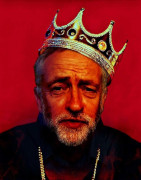



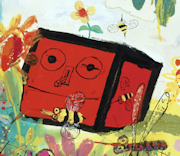
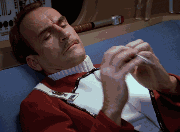



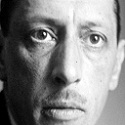
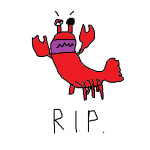
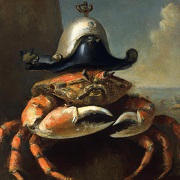



 Yes, it's like a lava lamp.
Yes, it's like a lava lamp.


